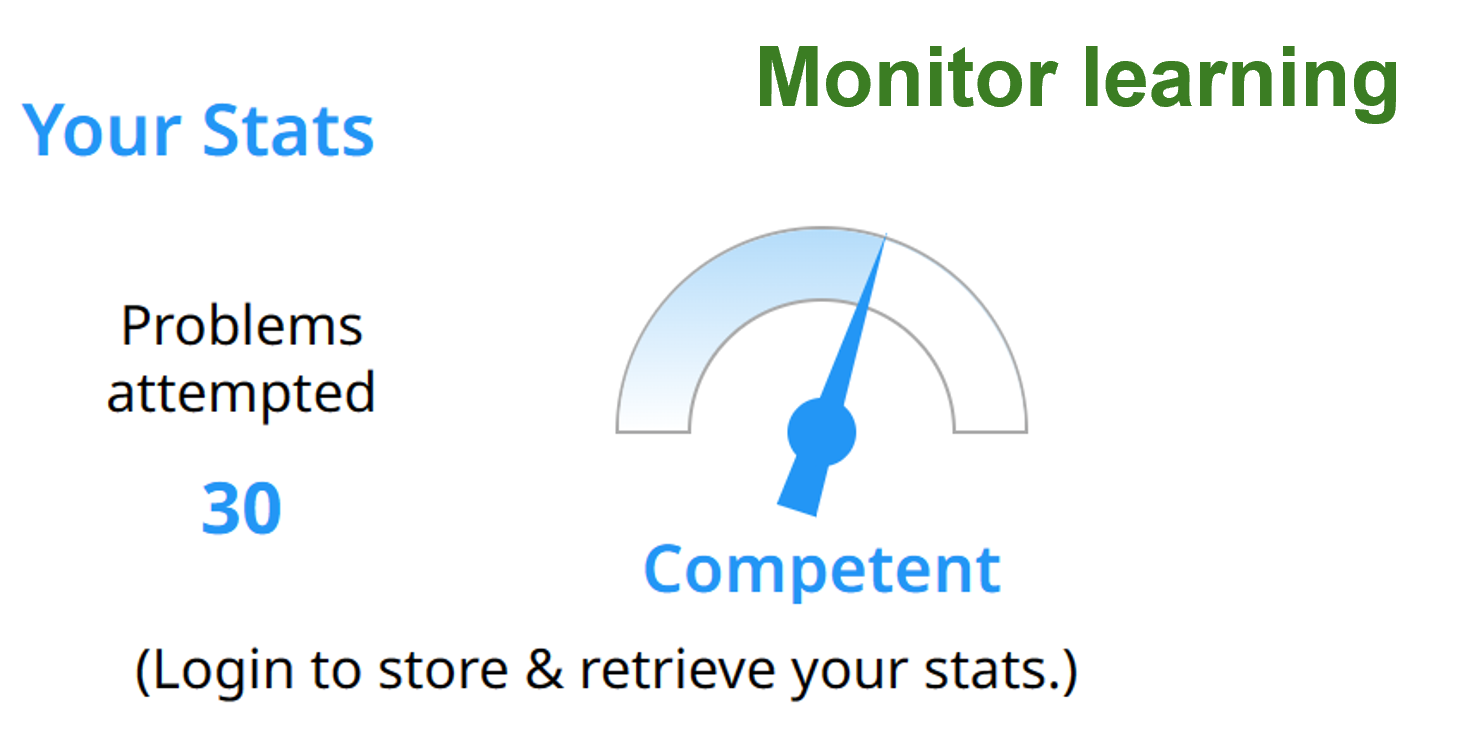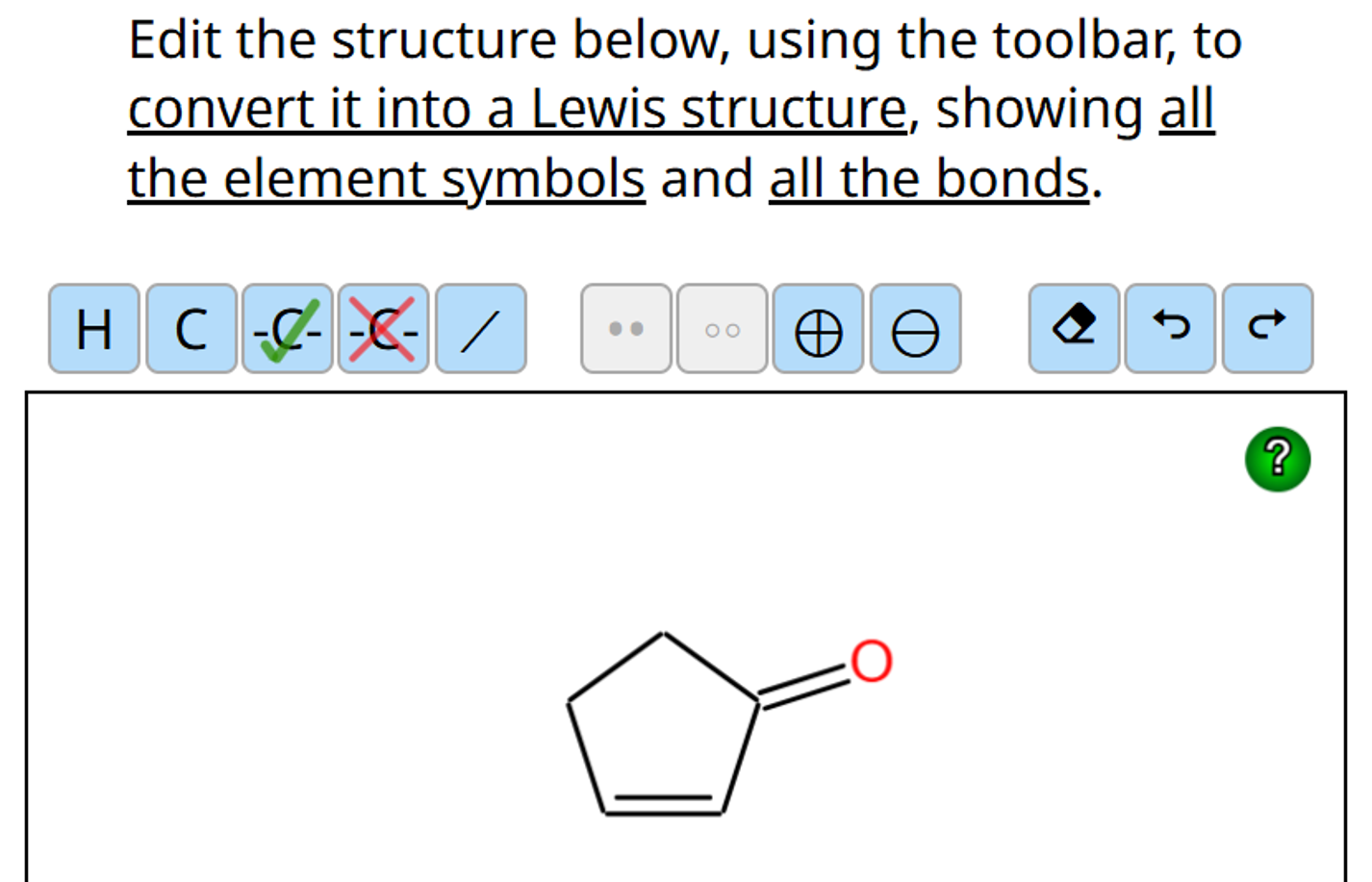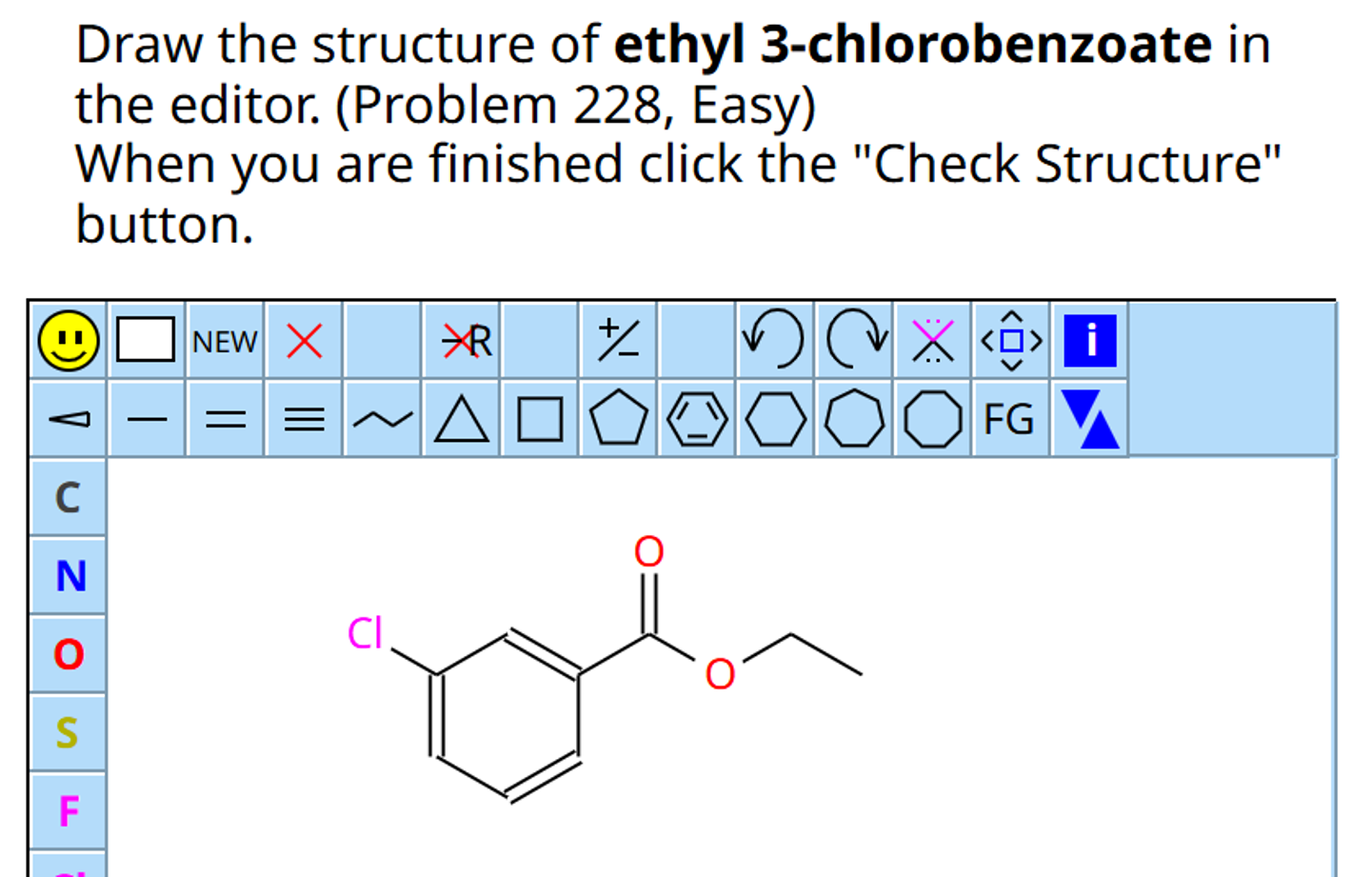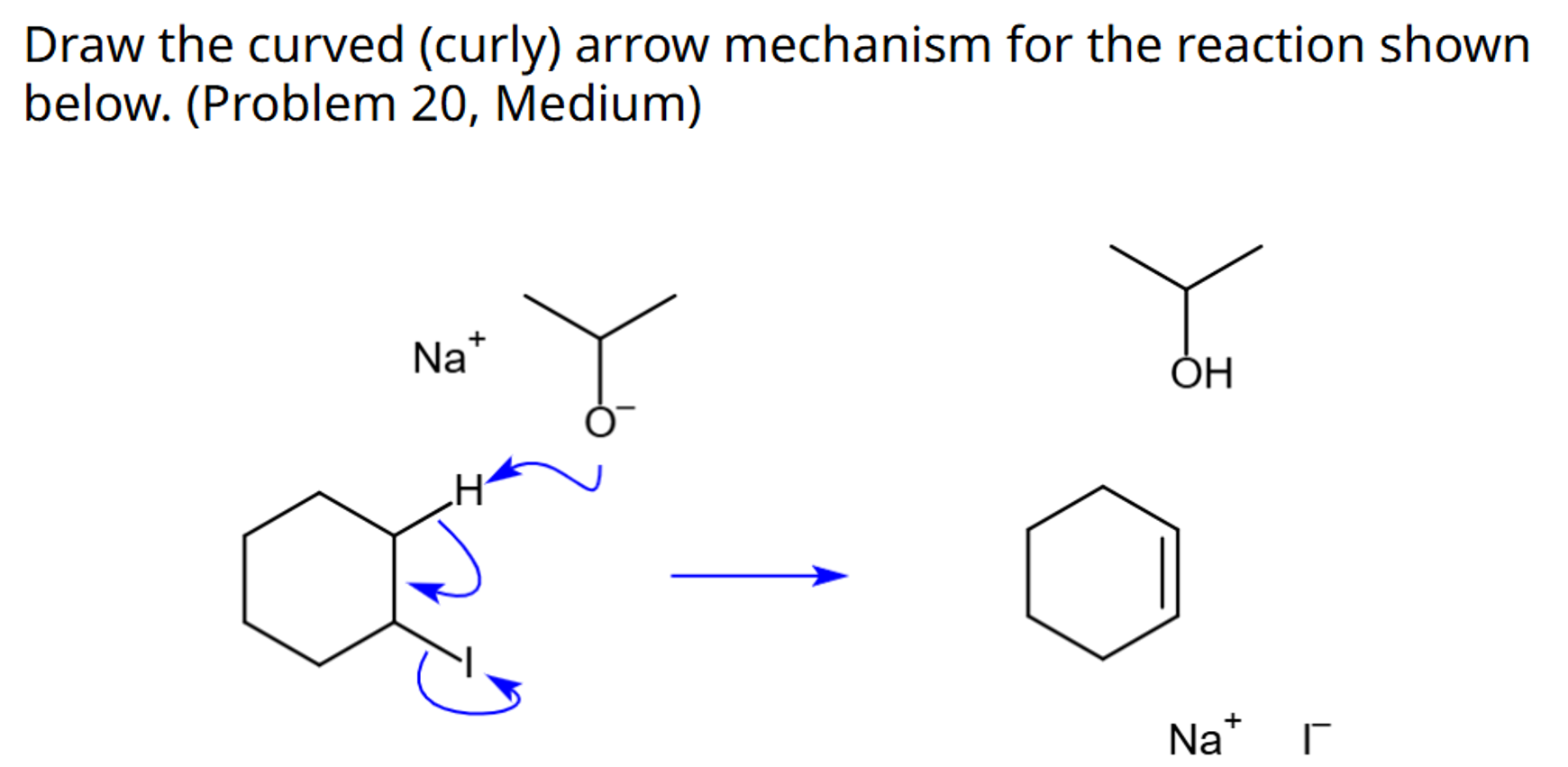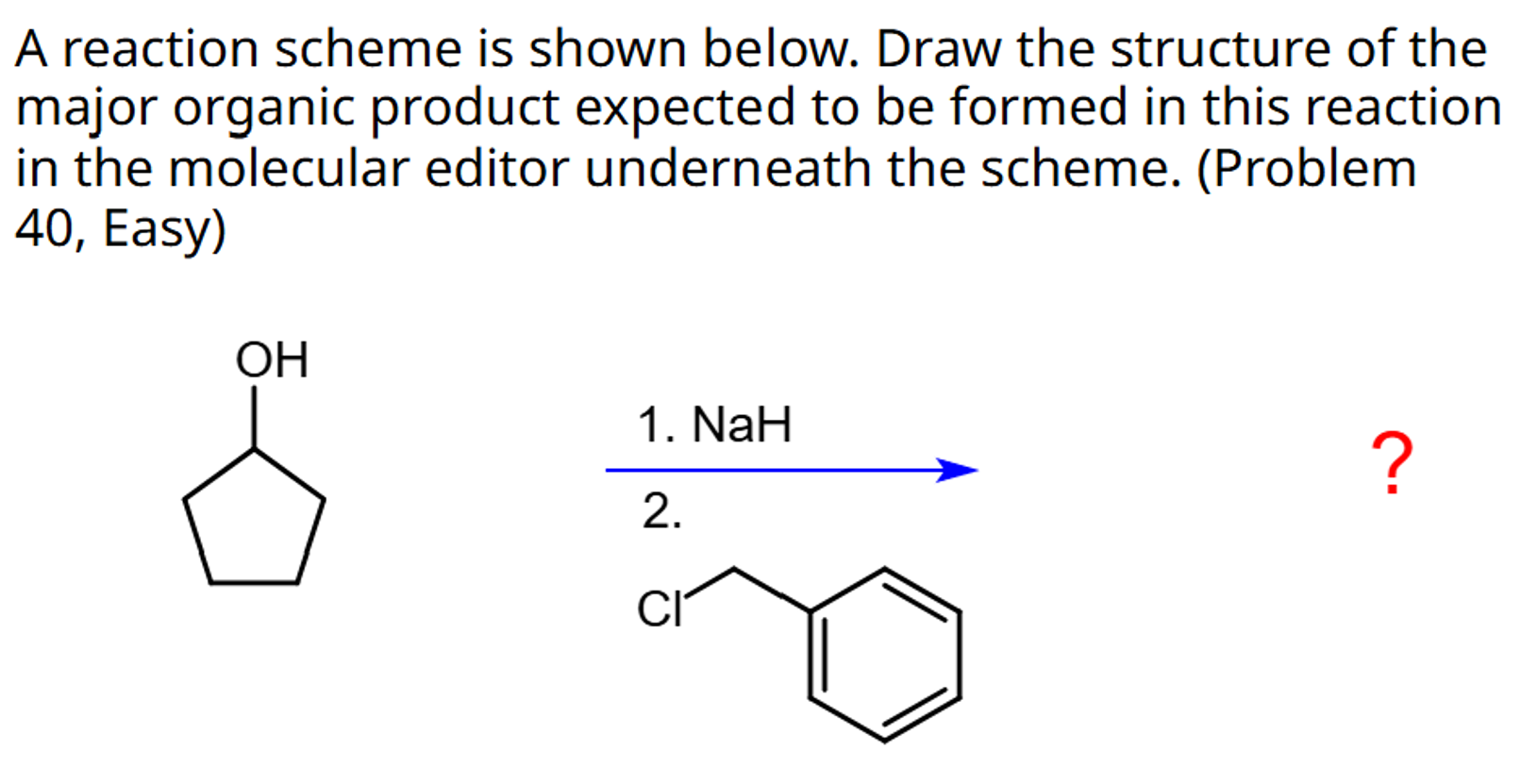Technical requirements: No downloads or plugins are required.
ChemInteractive should work on computers with any operating system as long as a modern browser is used; the only requirement is that JavaScript must be enabled.
It should work OK on tablets too, but is very difficult to use on very small screens. Some features will work on phones (iOS & Android) but others will not.
Only a few devices have been tested - if you find bugs or experience difficulties please report them here.
Privacy: No personal information is recorded (even for registration).
The development of ChemInteractive is done on a voluntary basis, with support from UCD School of Chemistry, so it is entirely free and there are no ads, and no cookies or trackers are used.
Statistics are collected using Google Analytics, but only non-specific information about users' broad locations and engagement with the site is collected.
If you wish to leave a comment in the Comments page, your username will be shown on the comment, and you will have options to provide an email address and your location (town/city).



